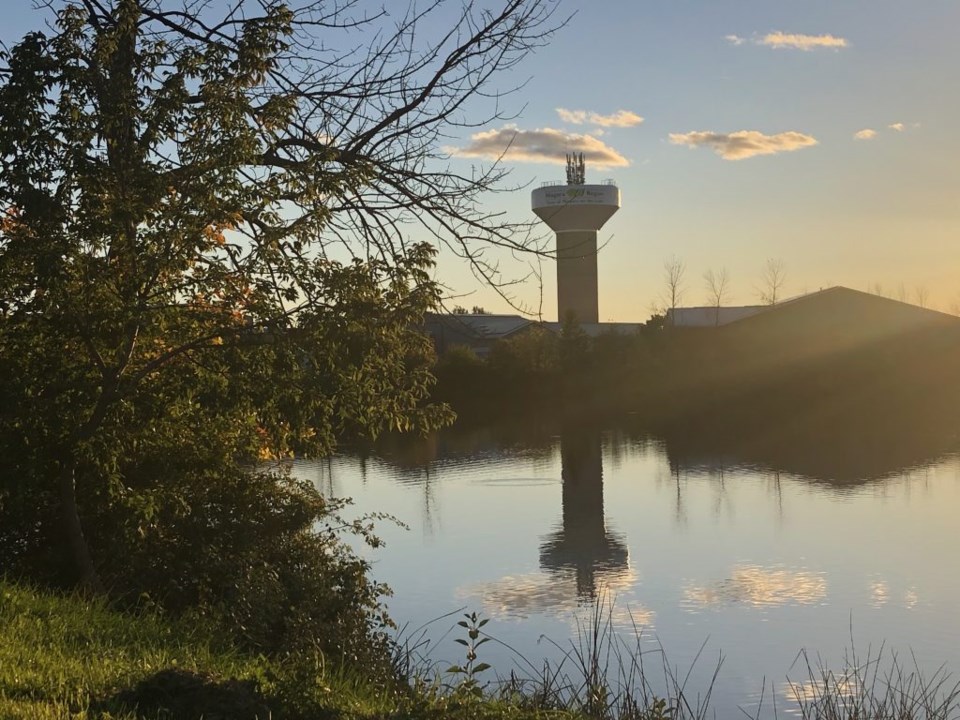
The Niagara Peninsula Conservation Authority has two cost-sharing programs that could help Niagara-on-the-Lake residents who might be considering environmental projects on their property.
One is for those who have abandoned water wells on their property they would like to plug and seal.
The other is for residents who would like to improve water quality, forest cover and wildlife habitat on
their property, a subject that has come up in discussions and articles in The Local recently for those whose homes border Four Mile Creek.
The deadline for applying for grants is Nov. 15, to be considered for projects in 2022, with grants of up to $15,000 available. There is some cost-sharing expected, explains Geoff Verkade, senior manager of integrated watershed planning and information management at the NPCA.
The Restoration Grant Program is one of several ways the NPCA works to improve the health of the Niagara Peninsula
watershed’s natural features — research has shown it is highly degraded, says Verkade.
There is a variety of project options, which can range from the creation of wetlands and tree plantings to riparian and upland habitat restoration, with grants available to private and public landowners, non-governmental organizations, nature clubs, and ‘Friends of’ groups.
Once the grant money is allocated, there are often waiting lists which will be considered first for the following year, and it’s helpful to reach out to the NPCA, if only for help working through the application, says Verkade. He and other NPCA staff are available to provide guidance for those who want to improve their properties, but aren’t sure the best way to go about it, and could work on that for applications to be submitted next year.
Verkade, who has worked for the NPCA in restoration for the last 20 years, says grants have been available for a long time, but there was a 10-year period where restoration work was “shut down or put on pause.” Since 2019, however, it’s been back on track, dedicated to preserving
and restoring watersheds, and with a greater demand for grants.
“That’s good, that people are noticing,” he says. “They’re finding out about it mostly through word of mouth. That’s been effective — neighbours talking to neighbours, especially given the huge rural component.”
In 2020, the program included the planting of 40,900 trees and 2,500 shrubs, reforestation of 18.3 hectares of land, and restoration of 4.74 hectares of wetland, 1.3 hectares of riparian habitat, and 2.9 kilometres of grass waterways, reports the NPCA.
“We continue to build on this momentum and the shared interest in a healthy and resilient watershed,” he says.
Although there is a cost-sharing element, “we try to ensure the lowest costs to residents,” he says, and can sometimes access other grants to that end, or for projects on the NPCA waiting list.
Grants are available to property owners right across the NPCA’s jurisdiction, which includes the Hamilton/Haldimand area as well as Niagara Region, but the grant program, while helpful, “is not the be-all and end-all. There are other services we can offer,” he explains.
That includes a broad base of restoration services, some fees-for-service.
Protection for watersheds “tends to be a hot topic when it comes to existing resources,” he says, “but people often forget about restoration from an impact perspective. Protection is good, and we can’t lose that, but we should be really
serious about restoration action in NOTL — the need is great. There is lots of good stuff that can be done, and we really need to be aware of the difference property owners can make.”
Projects are considered partly from the view of the opportunity for impact, he added.
The NPCA’s Water Well Decommissioning Grant Program is designed to protect groundwater by plugging and sealing abandoned or unused water wells. They can be a physical danger to kids and pets, and also allow contaminants applied to the surface to easily reach the water table. In addition to the safety element, decommissioning can plug the pollution pathway and protect the quality of groundwater.
Applications for well decommissioning projects are accepted year-round, on a first come, first serve basis. This program provides an 80 per cent grant rate to a maximum amount of $1,000 per well and a maximum of two wells per property.
For more information visit npca.ca/newsroom/article/restoration-water-well-decommissioning-programs-improve-water-quality